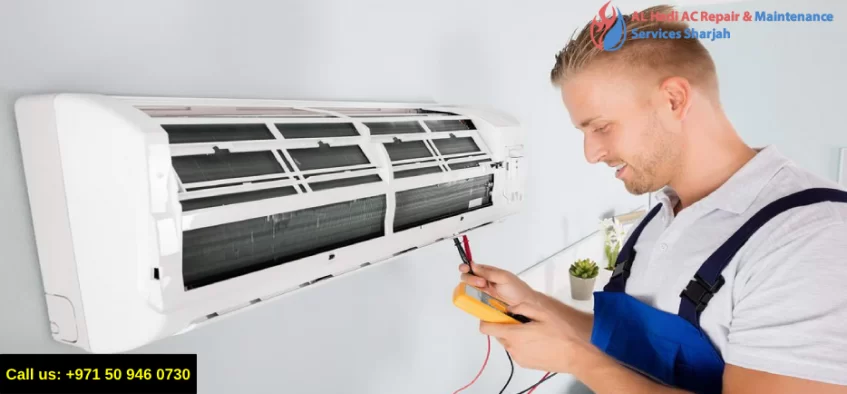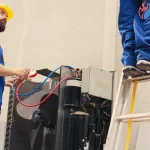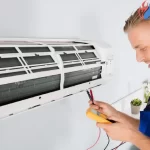
AC Maintenance Tips to Extend the Life of Your Unit
Introduction – Why Regular AC Maintenance Is Essential
AC Maintenance Tips to Extend the Life of Your Unit? Regular AC maintenance is critical for ensuring that your unit functions efficiently and lasts longer. It improves indoor air quality, enhances cooling performance, and helps you save on energy bills. Without proper care, your air conditioner can suffer from reduced performance and frequent breakdowns.
The Impact of Poor Maintenance on AC Performance
Neglecting AC maintenance can lead to a host of problems, including poor cooling, higher energy consumption, and unexpected breakdowns. Over time, dust and debris can clog the system, leading to overheating and system failure.
Benefits of Keeping Your AC in Top Condition
- Improved energy efficiency
- Consistent and effective cooling
- Better air quality
- Reduced repair costs
- Longer lifespan of your AC unit
How Preventive Maintenance Saves Money in the Long Run
Preventive maintenance reduces the likelihood of costly repairs and emergency breakdowns. It ensures all parts of your system are working efficiently, which means your unit uses less power to cool your space.
1. Clean or Replace Air Filters Regularly
How Dirty Filters Affect Cooling Efficiency
Air filters trap dust, pollen, and other airborne particles. Over time, they become clogged, restricting airflow and reducing cooling efficiency. This forces your AC to work harder, increasing energy usage.
When and How Often to Clean or Replace Filters
- Check filters monthly, especially during high-use seasons.
- Replace or clean filters every 1-3 months depending on usage and filter type.
- Homes with pets or allergy sufferers may require more frequent changes.
2. Keep the Coils Clean and Dust-Free
Importance of Clean Evaporator and Condenser Coils
The evaporator and condenser coils help absorb and release heat. When covered in dirt, they can’t perform their function efficiently, leading to overheating and reduced cooling.
Easy Steps to Clean AC Coils Safely
- Turn off the power to the unit.
- Use a soft brush or vacuum to remove surface dust.
- Apply coil cleaner and let it sit for the recommended time.
- Rinse with water and let it dry completely.
3. Check and Clean the Condensate Drain Line
Prevent Water Leaks and Mold Growth
A clogged condensate drain can cause water to back up into your home, leading to mold and water damage. Keeping it clean prevents these issues.
How to Spot and Fix a Clogged Drain Line
- Check for water pooling near the indoor unit.
- Use a wet/dry vacuum or a plumber’s snake to clear blockages.
- Flush the drain line with a mixture of vinegar and water.
4. Inspect and Seal AC Ducts
Avoid Energy Loss Through Leaky Ducts
Leaky ducts allow cool air to escape before it reaches your rooms, reducing efficiency and increasing energy bills. Sealing ducts ensures that all cooled air is used effectively.
Signs That Your Ducts May Need Sealing or Cleaning
- Uneven cooling in different rooms
- Hissing sounds near ductwork
- Visible dust buildup around vents
5. Keep the Outdoor Unit Clear of Debris
Maintain Proper Airflow Around the Condenser Unit
The outdoor unit needs space to release heat efficiently. Debris like leaves, grass, or dirt can block airflow and overheat the system.
How to Clean Around the Outdoor Unit Safely
- Clear vegetation and debris within a 2-foot radius.
- Gently wash the unit with a garden hose.
- Check for damage to the fins or casing.
6. Schedule Regular Professional AC Maintenance
What a Professional Tune-Up Includes
- Checking refrigerant levels
- Inspecting electrical connections
- Cleaning coils and filters
- Lubricating moving parts
- Testing thermostat accuracy
Ideal Frequency for Annual Maintenance Visits
- At least once a year, preferably before the summer season.
- For heavy usage, consider biannual maintenance (spring and fall).
Choosing the Right AC Service Provider
- Look for licensed and insured technicians.
- Check reviews and ratings online.
- Ask for a written estimate and service checklist.
7. Monitor Your AC’s Performance
Notice Changes in Cooling Speed or Strange Noises
Early warning signs of problems include unusual noises, inconsistent cooling, or longer run times. Monitoring performance helps you catch issues early.
Early Warning Signs That Require Professional Attention
- Grinding or squealing sounds
- Warm air blowing from vents
- Frequent cycling on and off
- Unusual smells from the unit
8. Use a Programmable Thermostat
Reduce AC Usage with Smart Temperature Control
Programmable thermostats help you set a schedule for cooling, reducing usage when it’s not needed and saving energy.
Lower Energy Bills Without Sacrificing Comfort
Smart thermostats learn your habits and adjust temperatures automatically to maintain comfort while using less energy.
Conclusion – Extend the Life of Your AC with Smart Maintenance
Stay Cool, Save Energy & Avoid Costly Repairs
Regular maintenance not only keeps your AC running smoothly but also saves you money and ensures comfort throughout the year.
Invest in Maintenance for Long-Term Comfort
By investing in preventive care and staying consistent with upkeep, you can extend your AC unit’s lifespan and enjoy cool, clean air without unexpected breakdowns.
FAQs – AC Maintenance Tips
How often should I service my AC unit?
Service your AC at least once a year. If you use it heavily or live in a dusty area, consider servicing it twice a year.
What’s the best time of year for AC maintenance?
Spring is the ideal time to schedule maintenance so your unit is ready for summer. Fall maintenance helps prepare for winter.
Can I clean my AC filters myself?
Yes, most filters can be cleaned or replaced easily. Follow the manufacturer’s instructions for best results.
Is it necessary to get an annual AC maintenance contract?
An annual maintenance contract ensures timely servicing, saves money on individual visits, and often includes priority service and discounts.




